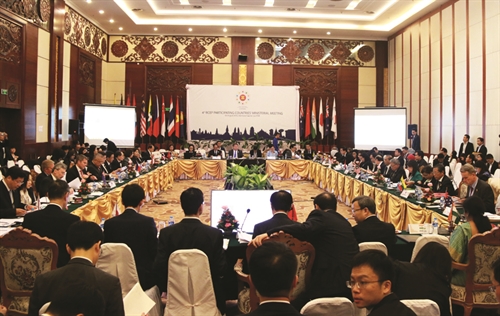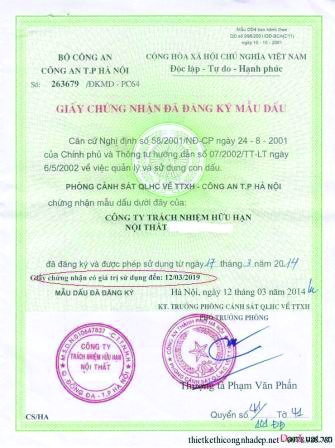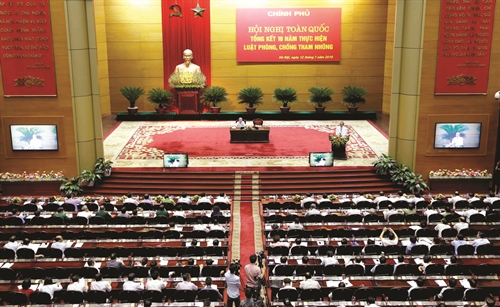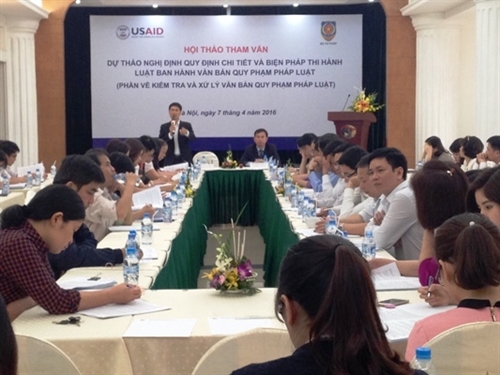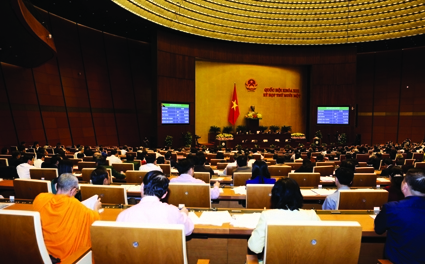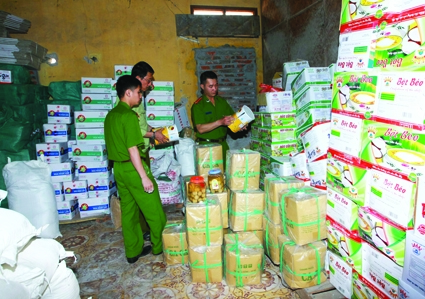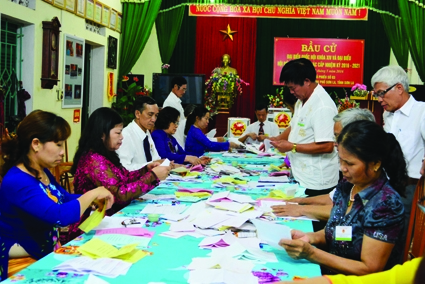Tran Thi Thu Phuong, LL.D
Vietnam University of Commerce
The regulations on franchising cover five important contents: conditions for franchising activities, registration of franchising activities, provision of information on franchise relationship between the franchise parties, and state management of franchise.
Conditions for franchising activities
Under the 2005 Commercial Law, to carry out franchising activities, an entity must be a trader being the franchisor or franchisee and meet certain conditions laid down in Government Decree No. 35 of 2006 detailing the Commercial Law regarding franchising activities (Decree 35). Specifically, the franchisor must satisfy the conditions on operation duration, goods and services being subject matters of commercial rights, and operation registration, while the franchisee must have a business registration compatible with the subject matters of commercial rights.
Vietnam’s regulations on conditions for carrying out franchising activities basically conform with international practices as well as understanding of franchise and facilitate franchising activities. The question is how to control the satisfaction of these conditions in practice? Under Decree 35, such control is conducted through checking a trader’s dossier of registration of franchising activities (prior inspection). But under Government Decree 120 of 2011 revising administrative procedures in the Decrees detailing the Commercial Law (Decree 120), only foreign traders offering franchises into Vietnam from abroad are required to make a registration dossier, while Vietnamese traders just have to report to provincial-level Industry and Trade Departments. Therefore, the conditions for carrying out franchise activities on Vietnamese traders may be controlled only after these traders carry out franchising activities.
Such control encounters difficulty when the 2014 Enterprise Law’s new provisions on enterprise registration become effective. According to this Law, the enterprise registration certificate no longer shows the business line(s) of an enterprise. So, agencies competent to inspect the conditions for carrying out commercial activities, namely the Market Surveillance Agency of the Ministry of Industry and Trade and market surveillance agencies of provincial-level Industry and Trade Departments as defined in Government Decree No. 185 of 2013 on sanctioning of administrative violations in commercial activities, production and trading of counterfeit and banned goods, and protection of consumer interests (Decree 185) and the 2012 Law on Handling of Administrative Violations, will find hard to inspect these conditions. Moreover, under Article 95 of Decree 185, penalties for breaches of the conditions for carrying out franchising activities are not severe enough. For example, the act of making untruthful or inaccurate declaration in a dossier for registration of franchising activities is subject to a fine of merely VND 3-5 million.
 |
| Consumers shop at Big C Thang Long department store, Hanoi __Photo: Phuong Anh/VNA |
Registration of franchising activities
As mentioned above, Decree 120 only requires foreign traders offering franchises into Vietnam from abroad to carry out registration procedures. So, this creates discrimination between Vietnamese and foreign traders engaged in commercial activities in Vietnam because the preparation of a registration dossier takes time and a foreign trader still risks having its dossier rejected, affecting its competitiveness in Vietnam as compared to a Vietnamese trader.
Concerning registration dossiers, Vietnam’s current regulations also show some inadequacies. Under Decree 35, a registration dossier must comprise the franchisor’s written introduction of franchising activities made according to the form provided in Ministry of Trade Circular No. 09 of 2006 guiding the registration of franchising activities (Circular 09) with 11 items to be filled in. But so far no instructions for filling in this form have been issued.
Circular 09 also requires a franchise registrant to report information relating to the above written introduction as of January 15 every year, enclosed with an audited financial statement of the last year. This has caused a difficulty to foreign traders because in many countries audit is not compulsory for medium- and small-sized enterprises. The deadline for submission of reports is another obstacle for enterprises. Normally, financial statements should be submitted three or four months after the end of a fiscal year. Even Vietnam’s accounting law permits enterprises to submit annual financial statements to competent state agencies within 90 days after the end of a fiscal year.
Furthermore, the provisions on the obligation of traders that are not required to register their franchising activities to report to provincial-level Industry and Trade Departments (Clause 2, Article 3 of Decree 120) prove impractical because there are no instructions on the contents of a report as well as no deadline for report submission in these cases.
The mechanism for inspection, supervision and handling of cases of non-performance of the registration or reporting obligation does not work effectively either. Currently, the highest fine on violators of this obligation is just VND 10 million, which is too modest compared to the scope and peculiarities of franchising activities.
Provision of information on franchising
Under the 2005 Commercial Law and Decree 35, the franchisor and franchisee are obliged to provide information to each other before and during the course of carrying out franchising activities. As for the franchisor, the law sets more specific requirements on information to be provided, aiming to protect lawful rights of the franchisee. As per Article 8 of Decree 35, the franchisor is obliged to provide a copy of the model franchise contract and a written introduction of its franchise to the prospective franchisee at least 15 working days before signing a contract, unless otherwise agreed by the parties. A secondary franchisor will also be obliged to provide the franchisee with information on its primary franchisor as well as the general contract on franchising and issues relevant to the parties’ relationship. In the course of performing a franchise contract, the franchisor must immediately notify to all franchisees any major changes in the franchise system that affect the franchisees’ business operations.
In the franchise relationship, the franchisee is often in a more disadvantaged position so the franchisor tends not to properly fulfill its obligation to provide accurate and prompt information. Yet, the fine of VND 3-5 million imposed on the act of improperly performing this obligation as prescribed in Decree 185 is rather low.
Additionally, Article 8 of Decree 35 allows shortening the time limit for information provision before signing a contract if it is so agreed by the parties. With this provision, the franchisor often attempts to reach agreement with the franchisee on a shorter time limit for information provision, leaving the franchisee less time to carefully look into the provided information before making decision to sign a contract.
Relationship between franchise parties
Under Vietnam’s law, the relationship between the franchise parties must be expressed in a contract. The 2005 Commercial Law stipulates that a franchise contract must be made in writing or another form of equivalent legal validity (Article 285). This Law makes no provisions on mandatory terms of a contract while Decree 35 only mentions possible terms of a franchise contract. However, Circular 09 prescribes mandatory terms of a model franchise contract and Decree 185 specifies acts of violation in relation to the principal contents of a franchise contract (Clause 2a, Article 95). So, the question is whether these documents contradict one another?
Moreover, the use of the phrase “unless otherwise agreed upon…” in Articles 286 thru 289 of the 2005 Commercial Law seems to make this Law’s provisions on rights and obligations of the franchisor and franchisee meaningless. The franchisor’s specific obligations in the franchise relationship, such as training, technical assistance or non-discrimination against the franchisees, which should be included in a franchise contract, may be skipped if the parties “otherwise agree upon” (Article 287). Furthermore, if the franchisor’s obligations in the relationship with the franchisee are not compulsory, then the franchisee’s right to unilaterally terminate a contract prescribed in Article 16 of Decree 35 seems hard to be exercised because this Article says such right may be exercised only when the franchisor breaches one of the obligations stated in Article 287.
Clause 2, Article 16 of Decree 35 lists the cases in which the franchisor may unilaterally terminate a franchise contract, but it does not set any time limits for notification and remediation of violations. This inadequacy has been often taken advantage of by the franchisor to cause difficulties to the franchisee.
A franchise contract has certain terms that reflect the characteristics of franchising activities, such as the terms on market division or designation of certain sources of raw materials to ensure the quality of products, or terms concerning business secrets to protect the safety and development of the entire system. These terms may become violations of the competition law. So the question is whether it is necessary to issue separate regulations on these matters. The provisions of the 2004 Competition Law apply to all commercial activities, including franchising. Then, do these provisions affect the characteristics of franchising activities?
State management of franchising
At present, the Ministry of Industry and Trade acts as the focal point in performing the state management of franchising. One of the tasks of the Ministry is to organize the registration of franchising activities, inspect, control and assess these activities and report to the Government (Article 4 of Decree 35). The Ministry’s Domestic Market Department has the authority to register franchises from abroad into Vietnam.
In localities, provincial-level People’s Committees are assigned to manage franchising activities, with their Industry and Trade Departments directly acting as management bodies. These Departments have the task of making periodical reports on local franchising activities based on reports of traders with franchising activities.
However, the current mechanism of enterprise registration makes it hard for provincial-level Industry and Trade Departments to identify traders engaged in franchising activities, resulting in the difficult identification of traders that have the reporting obligation.
Under the 2012 Law on Handling of Administrative Violations and Decree 185, the Market Surveillance Agency of the Ministry of Industry and Trade and heads of provincial-level market surveillance agencies have the authority to handle violations of the regulations on franchising. So, the coordination between these bodies is decisive to the effective control of franchising activities in Vietnam.
Proposals for improving the regulations on franchising
Concerning the conditions for carrying out franchising activities, there should be an effective mechanism for inspection and control and handling of violations. First of all, it is necessary to revise regulations on these conditions in compliance with the changes in the law on enterprises. Especially, fines should be increased to deter and prevent violations.
Another proposal is that the provisions on registration of franchising activities should be applied to all traders engaged in franchising activities in the territory of Vietnam. In addition, requirements on a franchise registration dossier should be clarified in a government decree so as to prevent the imposition of extra requirements in legal documents other than those mentioned in Clause 3, Article 7 of the 2014 Investment Law.
Also, a sub-law document with specific provisions on information to be provided should be issued in addition to a document on registration of franchising activities. Harsher fines should be meted out.
Separate regulations should also be issued to deal with contractual relationships, aiming to not only ensure the typical characteristics of franchising activities (in relation to the competition law) but also prevent the abuse by the franchisor of its status in the relationship with the franchisee (to protect lawful rights and interests of the disadvantaged).
Finally, it is necessary to re-consider the division of powers among the units within the Ministry of Industry and Trade and provincial-level People’s Committees in performing the state management of franchising. A mechanism of coordination among these units should be worked out or the authority to inspect and handle violations should be assigned to a single body.-
